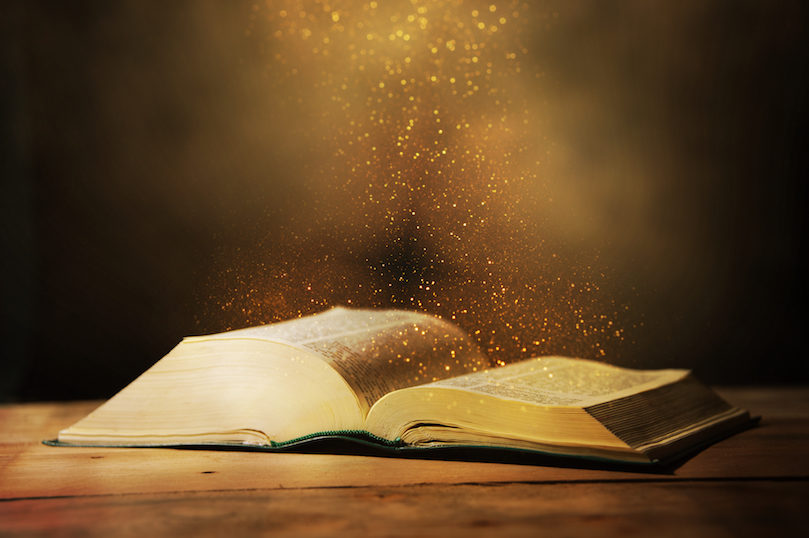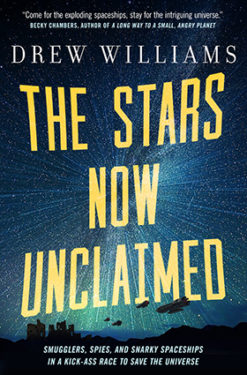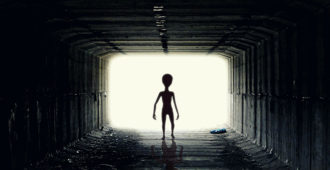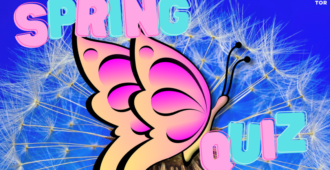With A Chain Across the Dawn coming in May, we’re revisiting author (and bookseller!) Drew William’s brilliant post on convincing the readers in your life to try genre.
So: you read genre novels. Maybe you devour space opera science fiction, maybe high fantasy is your thing, maybe you couldn’t imagine living without the visceral thrill of spine-tingling horror. The point is, you love the books you love, and you want to share them with the people you love, because that makes you feel good, and you think if they just got over themselves, they’d love them, too, and that would make you feel even better (because you would have been able to measurably improve the lives of your loved ones, with the added benefit of being right). But every time you suggest something along genre lines, the reactions you get are usually something like: “I don’t know… spaceships, though?” or “I feel like scary stuff is just scary,” or “Does this have, like, wizards in it? Because I don’t… wizards.”
As a genre author and bookseller for nearly 20 years, I’m here to help.
Because I agree with you: the objections most people have against genre fiction (whether they’d admit it or not) tend to be buried in 1950s era moral panic, the sort of thing that led to the creation of the Comics Code and Joseph McCarthy. (Am I saying that if Joe McCarthy had just read more of his era’s genre works, he wouldn’t have been what he was? Yes. Yes I am.)
The sense that genre work is “juvenile” or somehow less “mature” than stories about white bread nuclear families quietly hating each other across dinner tables is one that’s dogged narrative art for quite some time, and not just in books (hence why The Dark Knight didn’t get nominated for an Oscar, and Black Panther probably won’t), but it seems more pronounced with novels: even your friends and family that have no hesitation flocking to the multiplex to see the latest Star Wars movie might balk at reading a novel with a starship on its cover, or a wizard and a dragon dueling on a mountaintop, even if it’s the sort of thing that would look absolutely bitchin’ airbrushed on the side of a van.
There’s a reason for that, and it’s a simple one: since roughly high school or so, most of us have been conditioned to think of books as vegetables, something we consume more because they’re good for us than because we enjoy them. That’s utter nonsense, of course (if you don’t enjoy the book you’re reading… stop. Stop reading it, and find another one; you’ll get significantly more out of something you like than something you’re forcing yourself to consume) but the idea still has a great deal of traction: books are important, and important things can’t be fun. The concept that something might be both can be difficult for some people to grasp thanks to being forced to read Moby Dick or Silas Marner in eleventh grade, and that dissonance is what I’m trying to address.
The first step is to find out what your family member does read (if they don’t read at all… that’s a different row to hoe, and a much harder one), then tailor your recommendation for something that plays to their strengths. Does your Aunt stick to historical literary fiction, because learning about history makes her feel like her reading is “worthwhile”? Then start her off with something along the lines of Erin Morgenstern’s The Night Circus, which is both historical literary fiction and a spellbinding tale of magic and romance. Does your father love to watch science fiction movies, but will only read thrillers like Lee Child? Then consider someone like Richard K. Morgan, who writes neo-noir detective novels that also deliver big idea science fiction (also, you’ve got a good entry point with him in the Netflix adaptation of Altered Carbon, but I’ll get to that in a moment). Is your sister big on political engagement and ripped-from-the-headlines narratives? Then Jeff Vandermeer’s Southern Reach might be your best bet. Most genre novels aren’t just fantasy or horror or sci-fi – they’ve usually got one foot in other genres, as well. Figure out where that crossover is with what your loved ones already read, and you’ve got an angle to work from.
If they still balk at this step, whip out the big guns: turn to the classics. Fahrenheit 451, Frankenstein, The Handmaid’s Tale, pretty much all of Poe’s or Wells’ or Verne’s works— these are all considered “classic” novels, the sort of thing that regularly get assigned in high schools, and are still great reads. Once that’s done, you can work your way towards the more well-established names in classic genre fiction: Ursula K. Le Guin, Isaac Asimov, Octavia Butler, the sort of luminaries that even those who don’t read genre stuff have at least heard of, and know carry a certain level of literary cachet.
Film or television adaptations can help, as well (like the Altered Carbon adaptation I mentioned earlier): it somehow becomes “acceptable” to read a novel by George R. R. Martin or Stephen King once that specific work has been made into a film or TV property. After all, it’s common knowledge that a book is always better than a film, so if you like watching Game of Thrones, you’re more likely to be willing to read it, too. And once they’re that deep, you can reel them in with similar works: maybe Joe Hill for the Stephen King readers, Daniel Polansky or Steven Erikson for the Game of Thrones fans, that sort of thing.
If you want a different angle of approach, lean in to the ‘all genre work is inherently juvenile’ thing: plenty of people who wouldn’t read V. E. Schwab will read J. K. Rowling, just because one is intended for children— and therefore “allowed” to have genre trappings— and the other isn’t. And once you’ve got them started on juvenile genre work, it’s usually pretty easy to push them towards more adult stuff (this is also easier if you start them with an author like Jonathan Maberry or Dan Wells, both of whom write separate series for juvenile and adult audiences). With fantasy in particular, this can be a good track to take, since a good deal of older fantasy writing— things published before the advent of “juvenile” fiction— straddle that line anyway; Robin McKinley’s The Blue Sword and David Eddings’s Belgariad come to mind as novels that start off “feeling” like juvenile works, but grow in maturity and complexity the further in you get.
Just remember: if all else fails, force them to read either The Princess Bride or The Hitchhiker’s Guide to the Galaxy— sit there and stare at them the whole time, if you have to— and if they hate those… you’re probably tilting at windmills. Not everyone will love genre fiction, after all. Also, some people are just terrible. People who hate those two books, specifically.
Order Your Copy of The Stars Now Unclaimed












